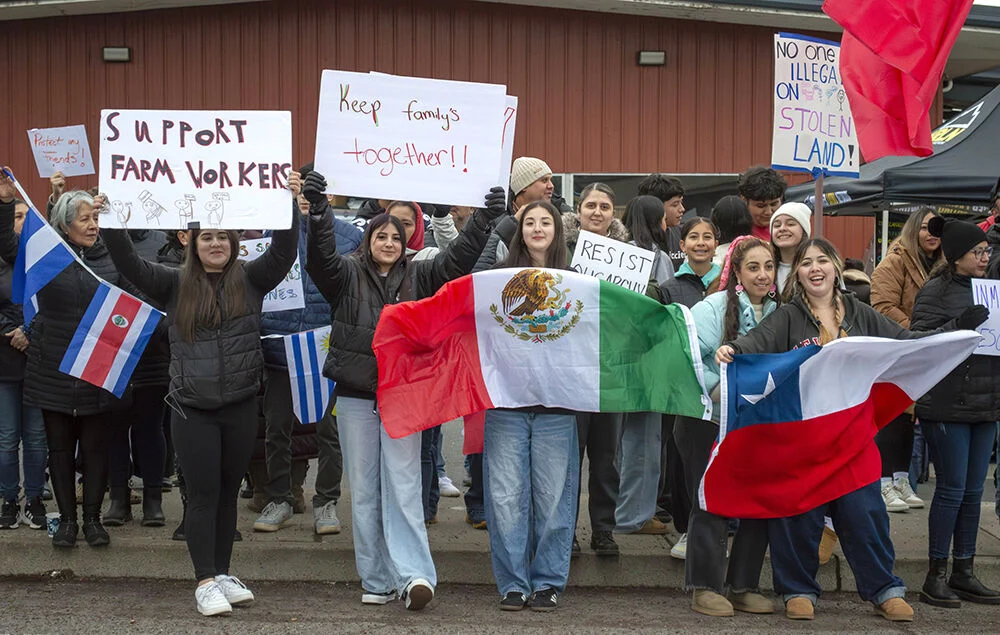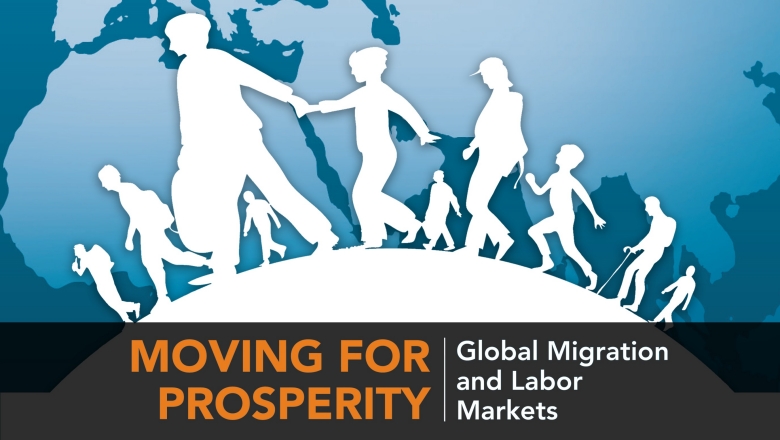In 2025, global migration continues to shape societies, economies, and personal lives, with countries like the United States, Greece, and others tightening immigration policies while grappling with humanitarian and economic demands. This article explores the evolving landscape of immigration, focusing on visa processes, policy changes, cultural adaptation, and the lived experiences of immigrants. Blending practical guidance, legal insights, and personal stories, it offers a comprehensive look at what it means to build a new life in a foreign land today.
The Global Immigration Landscape in 2025
Immigration remains a defining issue worldwide, driven by economic opportunities, conflicts, climate change, and personal aspirations. In the United States, the Trump administration’s 2025 policies have introduced stricter enforcement measures, while countries like Greece have tightened border controls to address irregular migration. Globally, 281 million people live outside their country of birth, according to the International Organization for Migration, with numbers rising due to climate-induced displacement and labor shortages. These dynamics create both challenges and opportunities for immigrants navigating complex legal systems and cultural landscapes.
The U.S. has seen significant policy shifts, with Executive Order 14159, signed on January 20, 2025, expanding expedited removal procedures and penalizing sanctuary cities. In Greece, a new migration bill set for summer 2025 imposes jail sentences for irregular migrants, reflecting a broader trend of deterrence. Yet, local governments and advocates in both nations are stepping up to support immigrants, filling gaps left by federal restrictions. Understanding these policies is crucial for anyone seeking to migrate legally or adapt to life in a new country.
“Immigration is not just about borders; it’s about people’s dreams, fears, and resilience,” says Dr. Maria Gonzalez, a migration scholar at Stanford University. “Policies shape paths, but human stories define the journey.”
Visa Processes: Pathways to Legal Entry
Navigating visa systems is often the first hurdle for immigrants. In the U.S., 226,000 family-based and 140,000 employment-based immigrant visas are available for Fiscal Year 2025, with the H-1B visa cap unchanged at 65,000 for regular applicants and 20,000 for master’s degree holders. The process demands precision—applications require extensive documentation, including financial records, employment contracts, and background checks. Delays are common, with employment-based visas taking up to 6 months and family-based petitions sometimes stretching over a year.
In Greece, the Golden Visa program remains a draw, requiring a €250,000 real estate investment in designated areas. Work visas, tied to specific job offers, necessitate certified translations of qualifications, while asylum applications face stricter scrutiny. Practical tip: Always verify requirements through official channels, such as the U.S. Citizenship and Immigration Services (USCIS) or Greek Ministry of Foreign Affairs. Hiring an immigration lawyer can prevent costly errors, especially for complex cases like asylum or employment-based petitions.
Step-by-Step Visa Application Guide
Step 1: Identify the Right Visa. Research visa types based on your purpose—work, study, family reunification, or investment. For example, the U.S. H-1B is ideal for skilled professionals, while Greece’s Golden Visa suits investors. Check eligibility criteria carefully to avoid wasted effort.
Step 2: Gather Documentation. Collect passports, educational certificates, financial statements, and job offers. In the U.S., employment-based visas require a Labor Condition Application (LCA), while Greece demands certified translations for work permits. Organize documents early to meet tight deadlines.
Step 3: Submit Applications. File through embassies, consulates, or online portals like USCIS’s e-filing system. In 2025, digital platforms have streamlined submissions, but double-check for errors before submission, as mistakes can lead to rejections.
Step 4: Prepare for Interviews. Many visas require interviews at consulates. Practice clear, honest responses about your intentions and background. Bring all original documents to verify your application.
Step 5: Monitor and Follow Up. Processing times vary—tourist visas may take 15–30 days, while asylum cases can take months. Check application status online and respond promptly to requests for additional evidence. Patience is key, but proactive follow-ups can prevent delays.
“The visa process felt like climbing a mountain,” says Amina Hassan, a Syrian refugee granted asylum in Greece. “Every document mattered, and I learned to double-check everything with a lawyer’s help.”
Challenges of Immigration: Barriers and Solutions
Immigrants face numerous challenges, from legal hurdles to social isolation. In the U.S., Project 2025 proposals threaten protections for Dreamers and Temporary Protected Status (TPS) holders, impacting 1.35 million TPS recipients and 800,000 DACA beneficiaries. Expedited removals, expanded under Executive Order 14159, increase deportation risks for undocumented individuals, particularly those within 100 miles of the border and present less than two years. These policies heighten fear, especially for mixed-status families, with 4.5 million U.S.-born children at risk of parental deportation.
In Greece, irregular migrants face two-year jail sentences and electronic monitoring under the 2025 migration bill. Overcrowded reception centers, like those on Lesvos, house thousands in substandard conditions, with reports of 10,000 displaced after the 2020 Moria fire. Language barriers and limited access to legal aid compound these challenges. Practical tip: Seek support from NGOs like the Greek Refugee Council or U.S.-based groups like the Immigrant Legal Resource Center, which offer free or low-cost legal assistance.
Solution: Build a Support Network. Connecting with local immigrant communities can ease isolation. In the U.S., organizations like United We Dream provide advocacy and resources for undocumented youth. In Greece, community centers in Athens offer language classes and job training. Joining these networks can provide emotional and practical support.
“I arrived in Chicago with no one,” says Juan Morales, a Mexican immigrant. “A local church group helped me find a job and learn English. Without them, I’d still be lost.”
Success Stories: Immigrant Resilience and Triumph
Despite challenges, immigrants often thrive, contributing to their new homes in profound ways. Take Priya Sharma, an Indian software engineer who secured an H-1B visa in 2024. After navigating stringent vetting, she now leads a tech team in Silicon Valley. “The process was grueling,” she says, “but every rejection taught me persistence.” Her story reflects the 140,000 employment-based visas issued annually, fueling U.S. innovation.
In Greece, Mohammed Al-Bayati, an Iraqi refugee, opened a bakery in Thessaloniki after gaining asylum. “I learned Greek through customers,” he shares. “Now, my baklava is famous in the neighborhood.” His success highlights how cultural contributions enrich communities. Practical tip: Leverage skills from your home country—whether cooking, coding, or craftsmanship—to build a niche in your new home.
“Starting over was scary, but I found purpose in sharing my culture,” says Al-Bayati. “Every loaf I bake feels like a small victory.”
Cultural Integration: Adapting to a New Life
Cultural adaptation is a cornerstone of immigrant success, yet it’s often fraught with challenges. Language barriers top the list, with 60% of immigrants reporting difficulty mastering the host country’s language, per a 2024 Pew Research study. In the U.S., regional accents and slang can complicate learning English, while in Greece, the Greek alphabet poses a unique hurdle. Practical tip: Enroll in free or affordable language classes—many U.S. libraries offer ESL programs, and Greek NGOs provide Greek lessons for refugees.
Social norms also require adjustment. In the U.S., workplace culture emphasizes direct communication, which can feel abrupt to immigrants from collectivist societies. In Greece, family-centric traditions contrast with the individualism of some newcomers. Practical tip: Observe local customs, ask questions, and find mentors who can explain unspoken rules. Joining cultural events, like Greek festivals or U.S. community fairs, fosters connection.
Food as a Bridge: Cooking and sharing traditional dishes can ease cultural divides. In Athens, refugee-run restaurants like Anixi serve Syrian and Afghan cuisine, drawing locals and tourists alike. In the U.S., food trucks run by immigrants often become community hubs. Try hosting a cultural dinner to share your heritage and build friendships.
“Cooking Ethiopian injera for my American neighbors opened doors,” says Liya Tesfaye, an immigrant in Seattle. “Food speaks when words fail.”
Tips for Cultural Adaptation
Learn the Language Gradually. Start with basic phrases and use apps like Duolingo for daily practice. Consistency beats perfection—aim for small, daily improvements.
Engage with Locals. Join community groups, volunteer, or attend local events to build relationships. Small interactions, like chatting with coworkers, build confidence.
Respect Local Customs. Research cultural norms, such as punctuality in the U.S. or hospitality in Greece. Asking locals for guidance shows respect and eagerness to learn.
Maintain Your Identity. Share your traditions through art, food, or storytelling. Balancing heritage and adaptation creates a unique, fulfilling identity.
Legal Guidance: Staying Compliant in 2025
Staying legally compliant is critical in an era of heightened enforcement. In the U.S., the Laken Riley Act, enacted January 29, 2025, mandates detention for undocumented immigrants charged with certain crimes and allows states to sue the Department of Homeland Security for enforcement failures. Visa revocations have also spiked, affecting international students and temporary workers. Practical tip: Carry proof of legal status, such as a visa or green card, and consult a lawyer if facing immigration issues.
In Greece, the 2025 migration bill’s penalties for irregular migration underscore the need for legal awareness. Asylum seekers must file claims promptly, as delays can lead to detention. Practical tip: Contact organizations like the UNHCR for guidance on asylum processes and rights. Never ignore official notices, as non-compliance can trigger severe consequences.
Legal Resource: In the U.S., the Immigrant Legal Resource Center offers free webinars on policy changes. In Greece, the Hellenic Red Cross provides legal aid for refugees. Stay informed through reputable sources to avoid scams targeting vulnerable immigrants.
“I nearly lost my visa due to a paperwork error,” says Elena Petrova, a Russian student in the U.S. “A lawyer from a local NGO saved my status. Don’t wait to seek help.”
The Human Toll: Stories of Struggle and Hope
Immigration policies often carry a human cost. In the U.S., cases like Yorely Bernal, a Venezuelan immigrant deported without her child, highlight the pain of family separations. 4.5 million U.S.-born children live with undocumented parents, facing emotional and financial strain when families are torn apart. In Greece, the Moria camp’s legacy lingers, with thousands still in limbo in temporary shelters.
Yet, hope persists. Maria Lopez, a Guatemalan asylum seeker in the U.S., gained legal status after years of uncertainty. “I cried when I got my green card,” she says. “It meant my kids could grow up without fear.” Her story underscores the importance of resilience and advocacy. Practical tip: Document your journey—keep records of arrivals, applications, and community ties to strengthen legal cases.
Looking Ahead: The Future of Immigration
As 2025 unfolds, immigration will remain a dynamic issue. Technological advancements, like AI-driven visa processing, promise efficiency but raise privacy concerns. Climate change will drive more migration, with Central America and the Caribbean seeing increased flows to the U.S. and Europe. Local advocacy, from councilwomen in U.S. cities to NGOs in Greece, will continue to counter federal restrictions, offering hope to newcomers.
Final Tip: Immigration is a marathon, not a sprint. Stay informed, seek support, and embrace your new home’s opportunities while honoring your roots. Whether through a visa, a new language, or a shared meal, every step forward is a victory.


















0 Comments